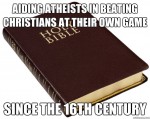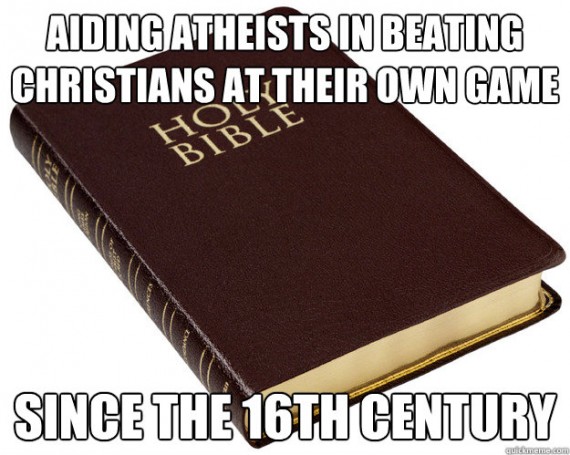Christians are always encouraged to become more “Christlike.”
But we rarely do.
Or at least, not to any significant degree.
Over the centuries, pastors and theologians have proposed dozens of explanations as to why this happens. Some say we just need to be more “filled with the Spirit.” Others say that the problem is that people who don’t live like Christians were never really Christians in the first place, and they won’t be until they truly “get saved.” A few proclaim that the problem is a lack of Bible knowledge, and that if we can just “renew our minds” with the Word of God, renewed lives will follow. And on and on it goes.

Can I propose something radical?
Maybe the reason many Christians are not very Christlike is because the God we worship is not very Christlike.
In the minds of most Christians, God is sitting in heaven with His arms crossed and a scowl on His face about all the sin in our lives. In the minds of most, the primary activity of God is to judge sin, point out our failures and weaknesses, and decide who is truly righteous enough to be part of His family.
He is controlling to the point of determining who lives and who dies, and He is to blame for tsunamis, earthquakes, diseases, famines, and wars.
He manipulates countries, pulls strings to govern human affairs, and demands the people follow and obey Him “or else.” And although He says He loves humanity, He does not seem to like us very much. At least, not until we fix ourselves up a bit. After all, “God cannot even look upon sin. He loves the sinner, but hates the sin.”
And since humans become like what we worship, when we worship this God who doesn’t look much like Jesus, we become more like God and less like Jesus.
Just like God, we sit around with our arms crossed and a scowl upon our faces at all the sin in other people’s lives.
Just like God, our primary activities seem to include judging sin, pointing out the failures and weaknesses in others, and deciding who is truly righteous enough to be in God’s family.
Just like God, we seek to control the lives of others, telling them what they can and cannot do, can and cannot believe.
And since our God seems to be at war against “wicked people,” we feel it is our duty and responsibility to also wage war against people we think are “wicked.” You know, the Muslims, the gays, and the abortion doctors.
Just like God, we try to manipulate rulers and leaders to do what we want. We try to pull the strings behind the scenes to get others to follow our ideas and our teachings.
And just like God, while we say that we love everybody, we don’t seem to like other people very much. We do not hang out with “sinners,” because they might pollute us. We say that we “love the sinner, but hate their sin.”
We have become images of the God we worship.
And since our God is not very Christlike, neither are we.
But in recent decades, a growing number of people are beginning to see what it really means for Jesus to be God incarnate.
An increasing number of people are beginning to recognize that one of the primary reasons Jesus came was to reveal God to us.
People are beginning to see that Jesus is not like God; God is like Jesus.
And God has always been like Jesus. God has always been with us and among us, sharing our pain, taking our blame, and redeeming our shame. He heals, He comforts, He restores. He hates nobody, kills nobody, and condemns nobody. He knows all, loves all, and forgives all.
And though many among Western Christianity are just now coming to understand that Jesus reveals God to us, this view is not new. It was the dominant view of the church for over 1000 years, and has always been the view of Jesus in Eastern Christianity. It is only in the West, where we allowed economics and empire to guide our theology, that God came to look more like a king on a throne than Jesus on the cross.
But that is all changing now, and I cannot wait to see what happens in the church and in the world as a result.
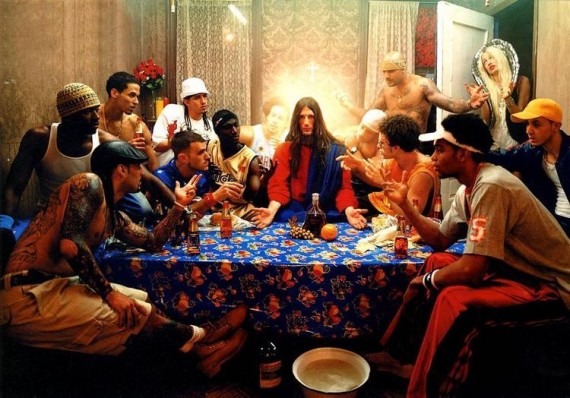
To become more Christlike ourselves, we need a more Christlike God, and to see a Christlike God, we simply need to look at Jesus.
And when we look at Jesus, and recognize the truth … that He is the image of the invisible God (Col 1:15) and the exact representation of God (Heb 1:3), we will discover that we start to become more Christlike as well.
We will bless those who curse us.
We will pray for those who persecute us.
We will serve those who wish us only harm.
We will love those who seek violence against us.
We will hang out with those that religious people label as “sinners.”
We will see all people as our brothers and sisters, rather than just those who dress like us and believe like us.
We will no longer judge and condemn others, but will freely forgive them instead.
And we will do all these things because this is how Jesus treated others and how our Heavenly Father treats us.
When we see that God is Christlike, we will become Christlike as well.



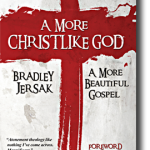
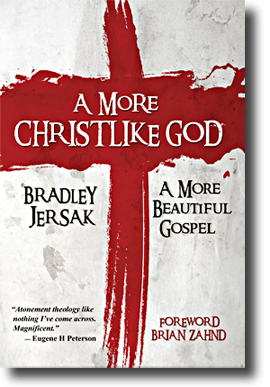
 One of the key sections of A More Christlike God is where Brad Jersak discusses the all-important issue of “the wrath of God.” This idea is found in numerous places in the Bible, and is one of the key issues in this debate about what God is like. Many people assume that the phrase “the wrath of God” indicates that God is angry at us. Jersak presents a compelling case for why this is not a proper understanding of that term. He rightly critiques the idea that “the wrath of God” is God withdrawing His mercy. God never withdraws His mercy. God’s mercy is unfailing and everlasting. His mercy endures forever (Psalm 136).
One of the key sections of A More Christlike God is where Brad Jersak discusses the all-important issue of “the wrath of God.” This idea is found in numerous places in the Bible, and is one of the key issues in this debate about what God is like. Many people assume that the phrase “the wrath of God” indicates that God is angry at us. Jersak presents a compelling case for why this is not a proper understanding of that term. He rightly critiques the idea that “the wrath of God” is God withdrawing His mercy. God never withdraws His mercy. God’s mercy is unfailing and everlasting. His mercy endures forever (Psalm 136).
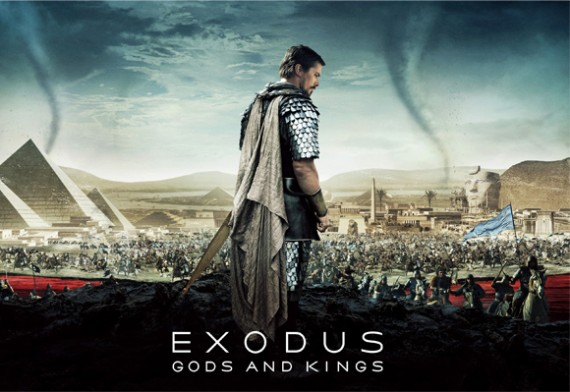
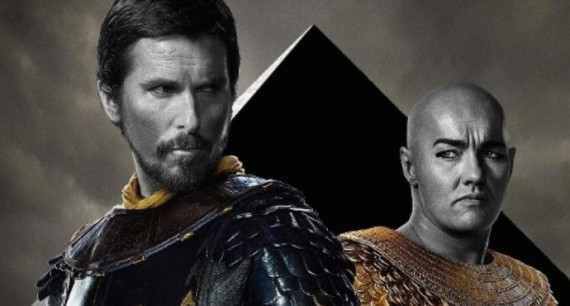
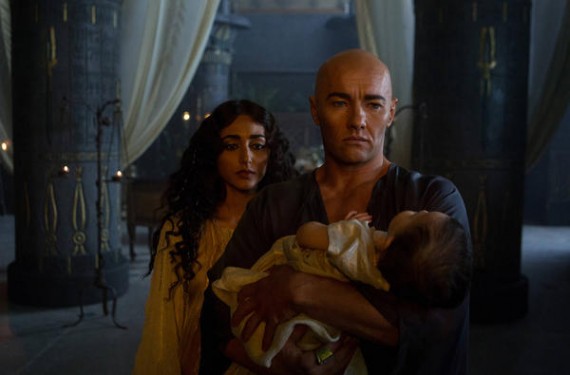

 Remember Andrea Yates? She is the mother who, in 2001,
Remember Andrea Yates? She is the mother who, in 2001, 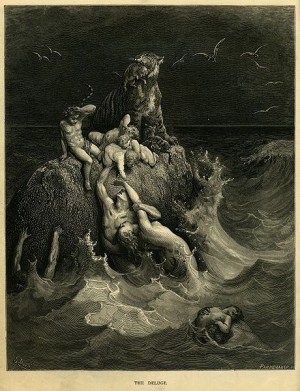 On the one hand, we say, “There is no way God told these mothers to drown their babies,” but then we turn around and say, “God drowned millions of babies during the flood.”
On the one hand, we say, “There is no way God told these mothers to drown their babies,” but then we turn around and say, “God drowned millions of babies during the flood.”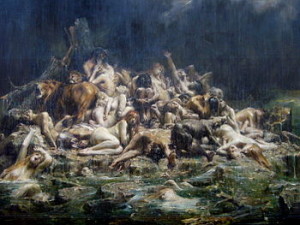 I have talked about this with numerous people over the past couple years, and almost without fail, people who defend the divine origin of the flood point to Jesus entering the temple with a whip (John 2:15; Matt 21:12) as proof that Jesus was also involved in sending the flood.
I have talked about this with numerous people over the past couple years, and almost without fail, people who defend the divine origin of the flood point to Jesus entering the temple with a whip (John 2:15; Matt 21:12) as proof that Jesus was also involved in sending the flood.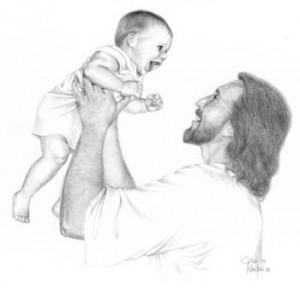 If Jesus is a God who drowns babies because “They’re the devil!” and then rides His horse through a lake of blood from His slain enemies because “They wouldn’t worship me!” (Duh! You drowned millions of their babies!), I’m just not sure this sort of God is worthy of our worship.
If Jesus is a God who drowns babies because “They’re the devil!” and then rides His horse through a lake of blood from His slain enemies because “They wouldn’t worship me!” (Duh! You drowned millions of their babies!), I’m just not sure this sort of God is worthy of our worship.